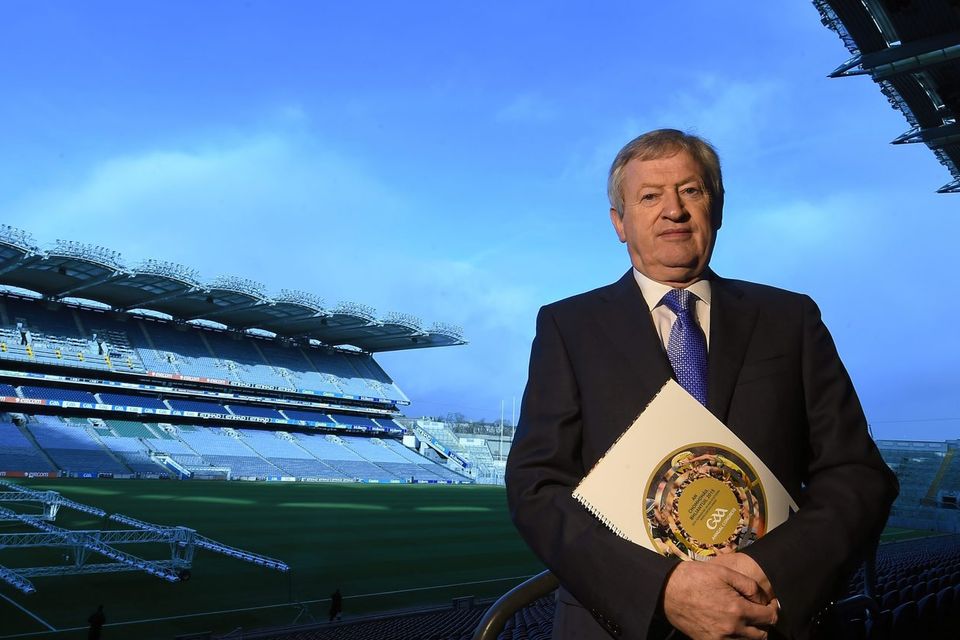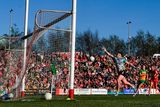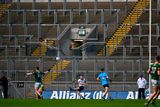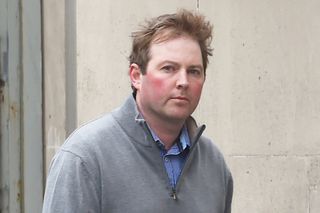'Kick-outs crossing 45-metre line would improve football'
GAA director-general Páraic Duffy at the launch of his annual report at Croke Park
GAA director-general Paraic Duffy has given his backing to a modification in Gaelic football that would compel all kick-outs to cross the 45-metre line.
Such a minimum distance was applied in the International Rules Test against Australia in Perth last November with considerable success, according to Duffy.
And he has called on Central Council to approve examination of this type of kick-out with a view to implementing it.
"The rule change that all kick-outs had to travel beyond the 45-metre line ensured a very attack-minded game and greatly increased the number of high catches in the midfield area," writes Duffy of the International Rules innovation in his annual report to Congress.
"Surely this is worthy of consideration as a possible amendment to the rules of Gaelic football. It would end the current practice of uncontested kick-outs and greatly reduce the volume of hand-passing that is so prevalent in the way football is now played.
"A decision by the Central Council to ask the Standing Committee on Playing Rules to examine the merits of such an amendment to our rules would be extremely positive."
Five years ago the GAA trialled a 'mark' for a kick-out that crossed the 45-metre line during the league and it worked to good effect before being rejected at Congress.
The Monaghan official feels the International Rules series is back on track after the Perth Test and credibility has been restored. Central Council have approved a 2015 Test.
He is chairing a committee set up to look at a national strategy for less successful counties, in accordance with the Football Review Committee's proposal, but admits reaching a consensus on how best to serve these counties with a fairer championship structure is proving difficult.
He wonders aloud as to why there is still a feeling within the Association as to why they haven't made progress.
Duffy doesn't envisage any work group reports on fixtures and playing rules after the publication of five different reports over the last two-and-a-half years but plans to produce an extensive paper later on the year that will draw on all of these proposals and allow the Association to decide how it will address these player welfare issues and the needs of the club player.
He has also used his report to defend the Gaelic Players Association, who have come in for criticism from a variety of sources in recent months, detecting a "certain resentment" towards them because they only represent inter-county players.
"Not all of the criticism of the GPA has been fair," he points out. "Some of those who criticise the GPA for not being militant enough now were the very ones who criticised it for being too militant when outside the GAA.
"Being militant for the sake of it would amount to posturing and would be unproductive."
A sizeable section is devoted to the question of infrastructure within the GAA, with a feeling that it is time to consider the needs of the Association over the next 20 years.
"The issue is not one of overall capacity but rather the increased demand for seated accommodation," he writes.
He recalled the furore over the All-Ireland hurling quarter-finals when demand for seats far outweighed supply but there was still ample room on the terraces.
"This is a trend we cannot ignore," he notes.
Despite the controversy over moving the All-Ireland football semi-final replay between Kerry and Mayo to Limerick Duffy remains adamant that future replays, regardless of Croke Park availability, should be considered for provincial venues.
"We have a lot of stadia which aren't used as often as they need to be used," he said.















